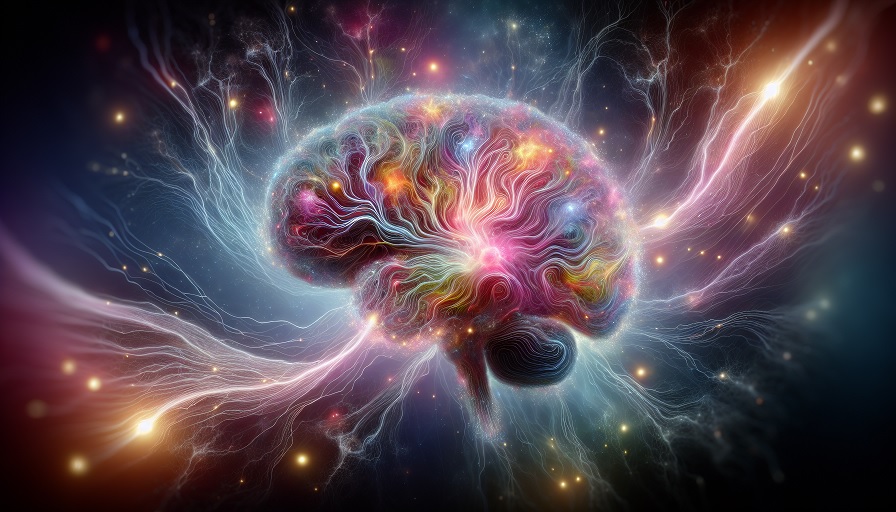
In a time before brain scans, cognitive tests, or supplement stacks, ancient Indian philosophers were already pondering how to keep the mind sharp, balanced, and deeply aware. Through traditions like Yoga, Ayurveda, and Vedanta, they developed a rich framework for mental clarity and resilience – concepts that modern neuroscience now finds remarkably consistent with what supports long-term brain health. While their language was spiritual and poetic, the underlying principles offer surprisingly practical guidance for anyone looking to maintain cognitive vitality well into later years.
Contents
- The Philosophical Foundation of Mental Longevity
- Meditation and Neuroplasticity
- Ayurvedic Diet and Brain Health
- Pranayama and Oxygenation
- Community, Connection, and Cognitive Resilience
- Purposeful Living and Brain Chemistry
- Nootropics in the Ancient and Modern Context
- Practical Steps to Apply Ancient Wisdom
The Philosophical Foundation of Mental Longevity
In ancient Indian thought, the mind was not seen as separate from the body or spirit. Systems like Yoga integrated mental discipline, physical postures, breath control, and ethical living as a single path to well-being. Ayurveda, the traditional medical science, went further by linking diet, daily habits, and environmental harmony to mental clarity and longevity.
Central to this philosophy is the idea of sattva – a state of mental purity, balance, and clarity. Sattva is cultivated through wholesome food, mindful living, self-reflection, and compassion. In modern terms, this can be understood as maintaining emotional regulation, minimizing stress, and nourishing the brain with a healthy lifestyle.
Meditation and Neuroplasticity
Ancient Indian texts placed enormous emphasis on meditation, not as an escape from reality but as a way to sharpen awareness. Modern brain imaging shows that consistent meditation thickens the prefrontal cortex (linked to decision-making and focus) and strengthens the hippocampus (key for memory formation). It also reduces activity in the amygdala, helping to regulate stress responses.
These changes reflect neuroplasticity – the brain’s ability to rewire and adapt throughout life. This adaptability is a cornerstone of cognitive longevity, allowing older adults to maintain function and even improve certain skills with the right mental training.
Ayurvedic Diet and Brain Health
Ayurveda’s dietary guidance emphasizes fresh, seasonal, and minimally processed foods, which aligns closely with modern nutritional advice for brain health. Foods rich in antioxidants, healthy fats, and anti-inflammatory compounds – like ghee, turmeric, nuts, seeds, and fresh vegetables – support neuronal health and reduce oxidative stress.
For example, turmeric contains curcumin, a compound shown to cross the blood-brain barrier and potentially reduce amyloid plaque buildup, which is associated with Alzheimer’s disease. Similarly, Ayurvedic herbs like Brahmi (Bacopa monnieri) have been studied for their ability to enhance memory and cognitive performance.
Pranayama and Oxygenation
Pranayama, or yogic breathing, was considered essential for mental clarity. From a modern perspective, controlled breathing techniques improve oxygen delivery to the brain, balance the autonomic nervous system, and increase heart rate variability – a marker of resilience against stress.
Research shows that slow, deep breathing can enhance alpha brainwave activity, which is associated with relaxed alertness and creative thinking. This mirrors the ancient belief that breath control can “still the fluctuations of the mind.”
Community, Connection, and Cognitive Resilience
Indian philosophy emphasized sangha, or the company of like-minded people, as a source of strength. Social connection is now recognized as a powerful factor in protecting against cognitive decline. Regular engagement in meaningful conversations and community activities stimulates multiple cognitive domains and fosters emotional well-being.
In rural parts of India where community bonds remain strong, older adults often maintain sharp minds well into advanced age – not because they’ve avoided aging entirely, but because their social and intellectual lives remain active and purposeful.
Purposeful Living and Brain Chemistry
Vedanta teaches the concept of dharma – living in alignment with one’s purpose. Having a sense of meaning in life has been linked in modern studies to better cognitive outcomes and lower dementia risk. Purpose-driven living engages the brain’s reward systems, increasing dopamine and other neurotransmitters that support motivation and cognitive function.
Nootropics in the Ancient and Modern Context
While ancient India didn’t use the term “nootropic,” Ayurvedic herbs like Brahmi, Ashwagandha, and Shankhpushpi were prescribed to enhance memory, focus, and mental resilience. Today, these herbs are studied alongside synthetic compounds for their potential neuroprotective effects. Modern nootropic stacks may combine such natural ingredients with vitamins, omega-3 fatty acids, or other agents to support brain health.
However, ancient philosophy would caution against relying solely on substances without cultivating the lifestyle habits that form the foundation of long-term mental vitality.
Practical Steps to Apply Ancient Wisdom
- Adopt a sattvic diet: Choose fresh, seasonal foods and limit processed items.
- Commit to daily meditation: Even 10–15 minutes can improve focus and emotional balance.
- Practice pranayama: Incorporate deep breathing exercises to enhance calm and oxygenation.
- Strengthen community bonds: Stay socially engaged through shared activities or volunteer work.
- Live with purpose: Identify and pursue activities that align with your core values.
Ancient Indian philosophy offers a holistic blueprint for cognitive longevity – one that integrates diet, movement, breath, social connection, and purpose. Modern neuroscience is now catching up to these ideas, confirming that a balanced, intentional life supports the brain as much as the body. By blending timeless wisdom with current science, we can build habits that keep our minds clear, resilient, and deeply engaged at every stage of life.

